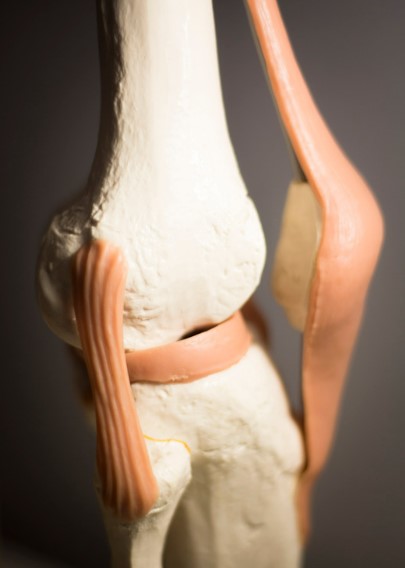Tendon health can be significantly impacted by hormonal changes – like those during menopause, which may result in tendinopathy (or tendon pain).
During menopause, several key hormones undergo significant changes, impacting various aspects of a health, most notably a decline in estrogen, which plays a crucial role in the development and regulation of the female reproductive system.
Role of Estrogen:
Estrogen has a protective effect on tendon health and connective tissues. It helps maintain the strength and elasticity of tendons by influencing collagen synthesis and repair. During menopause, estrogen levels drop significantly. This reduction can lead to decreased collagen production and altered collagen structure, making tendons more prone to injury and pain.
Collagen’s Function:
Collagen is a crucial protein that provides structural support to tendon health. Estrogen supports the synthesis and maintenance of collagen. With reduced estrogen, the quality and quantity of collagen in tendons can decline, which may weaken tendons and make them more susceptible to damage.
Bone Density:
Menopause is associated with a decrease in bone density due to hormonal changes, particularly reduced estrogen levels. Lower bone density can alter the biomechanics of how forces are transmitted through the body, which can indirectly affect tendon health and lead to pain or injury.
Symptoms of tendon related pain may include
- Localized Pain: commonly in the shoulders, elbows, or wrists.
- Stiffness
- Tenderness
- Swelling
- Pain During Rest
- Increased Pain with Activity
- Weakness
Addressing Tendon Pain During Menopause
Exercise: Regular physical activity, particularly resistance training, can help maintain tendon strength and flexibility. Focus on exercises that promote joint stability and muscle support.
Nutrition: A balanced diet rich in nutrients that support connective tissue health, such as vitamin C and amino acids, can be beneficial.
Hormone Therapy: For some women, hormone replacement therapy (HRT) might be considered to mitigate menopausal symptoms, including those affecting tendons. However, this should be discussed with a healthcare provider.In summary, the decline in estrogen levels during menopause affects collagen production and tendon health, potentially leading to increased tendon pain and susceptibility to injuries. Addressing these changes through lifestyle modifications and medical advice can help manage and alleviate symptoms.
Nutrition: A balanced diet rich in nutrients that support connective tissue health, such as vitamin C and amino acids, can be beneficial.
Hormone Therapy: For some women, hormone replacement therapy (HRT) might be considered to mitigate menopausal symptoms, including those affecting tendons. However, this should be discussed with a healthcare provider.In summary, the decline in estrogen levels during menopause affects collagen production and tendon health, potentially leading to increased tendon pain and susceptibility to injuries. Addressing these changes through lifestyle modifications and medical advice can help manage and alleviate symptoms.
If these symptoms are getting on top of you, reach out to Williamstown Health + Lifestyle along with supervision by your GP. We can structure an exercise plan and provide hands on treatment to assist you in managing this stage of life.
If you’d like to read more about menopause or women’s health then head over here.
Book online here or call our reception team (03) 9397 8877.





